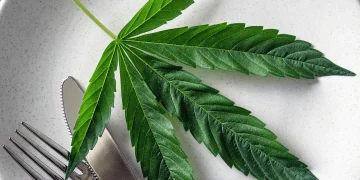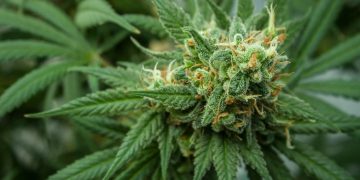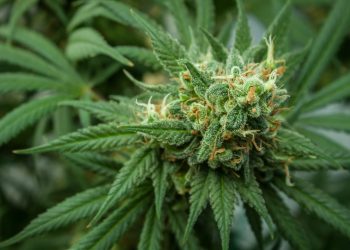[ad_1]
The Green Frontier: Navigating the Complexities of Cannabis Cultivation Laws
With the recent legalization of cannabis in several states, more and more individuals are becoming interested in cultivating their own cannabis plants. However, navigating the complex web of laws surrounding cannabis cultivation can be challenging for newcomers. In this article, we will explore the key aspects of cannabis cultivation laws, provide valuable insights, and address common questions that individuals may have when starting their own cannabis cultivation journey.
Understanding State Laws
It is essential to understand that cannabis cultivation laws vary from state to state. While some states have fully legalized cannabis cultivation for personal use, others have strict regulations in place that limit the number of plants an individual can grow. Before starting your cannabis cultivation journey, it is crucial to research and familiarize yourself with the laws and regulations in your state.
Keywords: state laws, cannabis cultivation laws, legalization, regulations
Obtaining a License
In many states, individuals who wish to cultivate cannabis for personal or commercial purposes are required to obtain a license. The process of obtaining a license can be time-consuming and may involve background checks, fees, and other requirements. It is essential to follow the proper procedures and obtain the necessary permits to avoid any legal issues.
Keywords: license, permits, cultivation, legal issues
Compliance with Regulations
Once you have obtained a license to cultivate cannabis, it is crucial to comply with all regulations set forth by the state. This may include restrictions on the number of plants you can grow, the use of pesticides, and security measures to prevent theft. By staying compliant with regulations, you can avoid fines, penalties, and other legal ramifications.
Keywords: compliance, regulations, restrictions, security measures
Environmental Considerations
Cannabis cultivation can have a significant impact on the environment, particularly in terms of water usage, energy consumption, and waste management. It is essential for growers to be mindful of their environmental footprint and take steps to mitigate any negative impacts. This may include using sustainable growing practices, implementing energy-efficient lighting systems, and properly disposing of waste.
Keywords: environmental impact, water usage, energy consumption, waste management, sustainable practices
Quality Control and Testing
Ensuring the quality and safety of your cannabis products is paramount. Many states require cannabis growers to test their products for potency, pesticides, and other contaminants before they can be sold to consumers. By implementing quality control measures and working with accredited testing labs, growers can ensure that their products meet industry standards and regulatory requirements.
Keywords: quality control, testing, potency, pesticides, contaminants, regulatory requirements
Security Measures
Security is a vital aspect of cannabis cultivation, as cannabis plants can be targets for theft and vandalism. Growers are often required to implement security measures such as surveillance cameras, alarm systems, and secure storage facilities to protect their crops. By investing in robust security measures, growers can safeguard their investments and prevent potential losses.
Keywords: security, surveillance cameras, alarm systems, theft, vandalism
Common Questions
Here are some common questions that individuals may have when navigating the complexities of cannabis cultivation laws:
Can I cultivate cannabis for personal use without a license?
While some states allow individuals to cultivate a limited number of cannabis plants for personal use without a license, it is essential to research the laws in your state to ensure compliance. In many cases, a license is required for both personal and commercial cultivation.
What are the penalties for non-compliance with cannabis cultivation laws?
Penalties for non-compliance with cannabis cultivation laws can vary depending on the severity of the violation and the state in which the offense occurs. Penalties may include fines, license revocation, and criminal charges. It is crucial to understand and follow all regulations to avoid legal consequences.
How can I ensure the quality of my cannabis products?
To ensure the quality of your cannabis products, it is essential to implement quality control measures, work with accredited testing labs, and follow industry standards for cultivation and processing. By investing in quality assurance, you can provide consumers with safe and potent cannabis products.
What are the best practices for sustainable cannabis cultivation?
Sustainable cannabis cultivation practices include using organic growing methods, conserving water and energy, and reducing waste. By implementing sustainable practices, growers can lessen their environmental impact and produce high-quality cannabis products in an eco-friendly manner.
How can I protect my cannabis crops from theft and vandalism?
To protect your cannabis crops from theft and vandalism, it is essential to implement robust security measures such as surveillance cameras, alarm systems, and secure storage facilities. By securing your grow operation, you can minimize the risk of losses and safeguard your investment.
Conclusion
Navigating the complexities of cannabis cultivation laws can be daunting, but with the right knowledge and preparation, individuals can successfully grow cannabis in compliance with state regulations. By understanding state laws, obtaining the necessary licenses, staying compliant with regulations, and implementing quality control and security measures, growers can navigate the green frontier of cannabis cultivation with confidence and success.
Keywords: cannabis cultivation, laws, regulations, compliance, quality control, security measures
[ad_2]































































